Drying rose hips in a dehydrator for the preparation of rosehip teas or powder
Preparation time10 min
Waiting time30 min
Cooking time10 hours
Ready in10 h 40 m
Rose hips as tea or powder - an excellent tonic, vitaminizing and mineralizing
Drying / dehydrating rose hips in a dehydrator: a good way to enjoy the benefits of rose hips during the cold season and beyond: rosehip tea or rosehip powder. Rosehip tea, with a sweet and sour taste, in addition to the amaizing aroma for taste buds, is ideal for strengthening the body's immunity, for preventing colds and flus, has a tonic-energizing effect, supports the health of the heart and vessels, supports the digestive system, is anti-inflammatory, rich in antioxidants and true source of vitamin A and C. Also, the rosehip powder has the same properties, which can be administered one teaspoon with ~200 ml of water.
Ingredients
- 1 kg of rose hips
Estimated cost: 3.0 €
Materials
- deshidrator de fructe
Preparation
 We wash the rose hips in 2-3 waters and leave them for half an hour, on flat surfaces (on kitchen towels) to evaporate the excess water.
We wash the rose hips in 2-3 waters and leave them for half an hour, on flat surfaces (on kitchen towels) to evaporate the excess water. After they have dried, we place the rose hips on the trays of the dehydrator as airy as possible.
After they have dried, we place the rose hips on the trays of the dehydrator as airy as possible. We set a drying time of 10 hours, at a temperature of 50 º C. The drying time differs in principle from the temperature chosen, but it is good to choose a temperature as low as possible, even 40 º C, in order not to alter the nutrients in the fruit through heating.
We set a drying time of 10 hours, at a temperature of 50 º C. The drying time differs in principle from the temperature chosen, but it is good to choose a temperature as low as possible, even 40 º C, in order not to alter the nutrients in the fruit through heating.
⚠ The drying time can also vary depending on the condition of the fruits, the type of dehydrator, how they are placed in the dehydrator. At the end, we turn off the dehydrator and leave the rose hips in it until they cool completely.
At the end, we turn off the dehydrator and leave the rose hips in it until they cool completely.
After they have cooled completely, the dried (dehydrated) rose hips can be stored in paper bags, or in various containers. Dried / dehydrated rosehips can be consumed in 2 ways:
Dried / dehydrated rosehips can be consumed in 2 ways:
- powder: ground, the powder will be easily separated from the kernels, as they cannot be crushed by grinding (in a coffee grinder),
- crushed in teas: be sure to crush or cut the dried rose hips and put ~1-2 spoons in 250 ml of hot water for at least 10 minutes.
Administration
→ Whole or crushed as tea:
- rosehip infusion tea: add 1-2 tablespoons of dry rosehips (ideally crushed) to 250 ml of boiling water, for 10 minutes.
- rose hip decoction tea: boil 1-2 tablespoons of dry rose hips (ideally crushed) for 5 minutes, then cover and leave to infuse for another 10 minutes.
Consume 1-3 cups of tea 3 times a day, ideally 30 minutes before meals.
For long periods, a break of 2 weeks is recommended for each month of administration.
→ Rose hip powder:
The dried rose hips will be ground through the coffee grinder, then with the help of a sieve we will separate the kernels. After grinding, the seeds from the rosehips do not crumble, they remain whole.
The powder is consumed mixed in water, 1-2 teaspoons per ~200 ml of water, 1-3 times a day, preferably 30 minutes before meals. It can also be used in teas or various drinks. A break of 2 weeks is recommended for each month of administration.
- rosehip infusion tea: add 1-2 tablespoons of dry rosehips (ideally crushed) to 250 ml of boiling water, for 10 minutes.
- rose hip decoction tea: boil 1-2 tablespoons of dry rose hips (ideally crushed) for 5 minutes, then cover and leave to infuse for another 10 minutes.
Consume 1-3 cups of tea 3 times a day, ideally 30 minutes before meals.
For long periods, a break of 2 weeks is recommended for each month of administration.
→ Rose hip powder:
The dried rose hips will be ground through the coffee grinder, then with the help of a sieve we will separate the kernels. After grinding, the seeds from the rosehips do not crumble, they remain whole.
The powder is consumed mixed in water, 1-2 teaspoons per ~200 ml of water, 1-3 times a day, preferably 30 minutes before meals. It can also be used in teas or various drinks. A break of 2 weeks is recommended for each month of administration.
Observations
Nutritional values for 1-2 tablespoons (~20 g)
- Vitamin A: 4% of the RDA;
- Vitamin C: 76% of the RDA;
- Vitamin B5: 4% of the RDA;
- Vitamin E: 6% of the RDA;
- Proteins: 5% of the RDA;
- Fat: 4% of DZR;
- Carbohydrates: 92% of the RDA.
DZR = from the recommended daily dose
→ Validity: consumption is recommended within a maximum of 1 year from the date of dehydration, if they are kept in optimal conditions.
⚠ For dehydration, it is recommended to pick the fruits in autumn, as late as possible, when they are almost dry on the trees.
⚠ We recommend dehydrating/drying the fruits at temperatures as low as possible and with ventilation (40ºC - 50ºC). This way we ensure that the main nutrients in the rosehip fruits will not be destroyed. The downside is that the lower the drying temperature, the longer the drying time.
Other methods of dehydrating/drying rose hips:
- in the oven, at temperatures as low as possible, now most ovens also have a dehydration function;
- natural drying: the fruits are laid out on flat surfaces, in airy/ventilated places, slightly heated and left for long periods of time. Care must be taken to turn them periodically ...;
- Vitamin A: 4% of the RDA;
- Vitamin C: 76% of the RDA;
- Vitamin B5: 4% of the RDA;
- Vitamin E: 6% of the RDA;
- Proteins: 5% of the RDA;
- Fat: 4% of DZR;
- Carbohydrates: 92% of the RDA.
DZR = from the recommended daily dose
→ Validity: consumption is recommended within a maximum of 1 year from the date of dehydration, if they are kept in optimal conditions.
⚠ For dehydration, it is recommended to pick the fruits in autumn, as late as possible, when they are almost dry on the trees.
⚠ We recommend dehydrating/drying the fruits at temperatures as low as possible and with ventilation (40ºC - 50ºC). This way we ensure that the main nutrients in the rosehip fruits will not be destroyed. The downside is that the lower the drying temperature, the longer the drying time.
Other methods of dehydrating/drying rose hips:
- in the oven, at temperatures as low as possible, now most ovens also have a dehydration function;
- natural drying: the fruits are laid out on flat surfaces, in airy/ventilated places, slightly heated and left for long periods of time. Care must be taken to turn them periodically ...;
Effects and benefits
- source of vitamin A and vitamin C;
- source of antioxidants;
- helps to strengthen immunity;
- has a tonic/energizing effect;
- increases resistance to effort;
- helps digestion (antioxidants/flavonoids contribute to the efficient breakdown of food and improve the absorption of nutrients);
- beneficial in slimming belts;
- has anti-inflammatory properties, can prevent rheumatoid arthritis, joint and muscle pain;
- recommended in intestinal inflammations;
- fights bloating;
- helps relieve cramps and heartburn;
- supports collagen synthesis (vitamin C, astaxanthin);
- maintains skin health, protects the skin from sunlight (vitamin A, lycopene);
- protective against cardiovascular diseases;
- prevents heart attack;
- prevents the formation of blood clots;
- reduces inflammation in the arteries and blood vessels;
- increases the resistance of blood capillaries;
- improves blood circulation;
- helps regulate blood pressure;
- helps lower bad cholesterol (LDL);
- recommended in liver diseases;
- increases bile secretion;
- good diuretic;
- good in urinary and kidney diseases of horses;
Side effects
- in case of overdose, due to the high content of vitamin C, there is a risk of developing kidney stones;
- allergies in people allergic to rose hips;
Contraindications
- during pregnancy and breastfeeding ask for the doctor's opinion;
- people who have kidney problems, only with the doctor's consent;
- contraindicated for those allergic to rose hips;
Another information
Rosehips contain astaxanthin, a carotenoid that may have anti-aging properties, helping to prevent collagen breakdown.
Rose hips inhibit the production of inflammatory proteins, thus reducing inflammation.
Rose hips inhibit the production of inflammatory proteins, thus reducing inflammation.
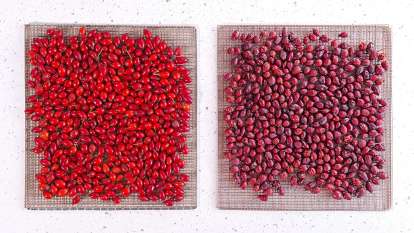
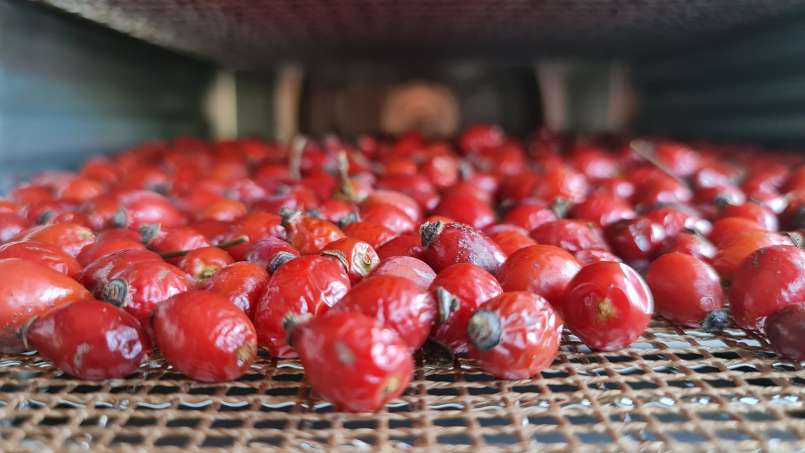
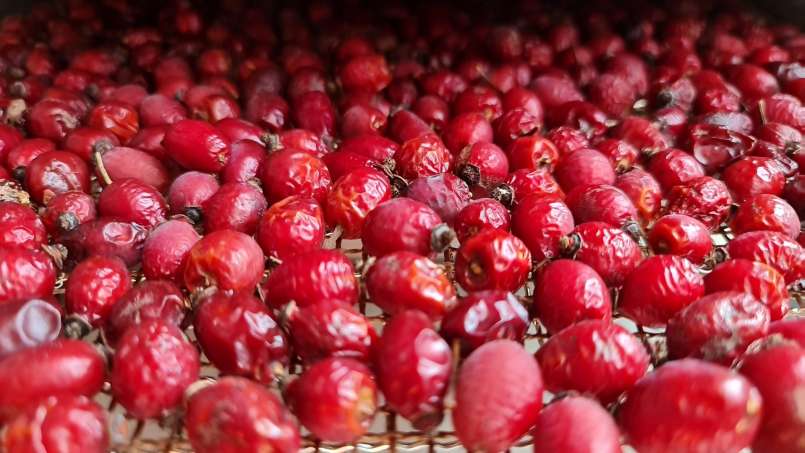
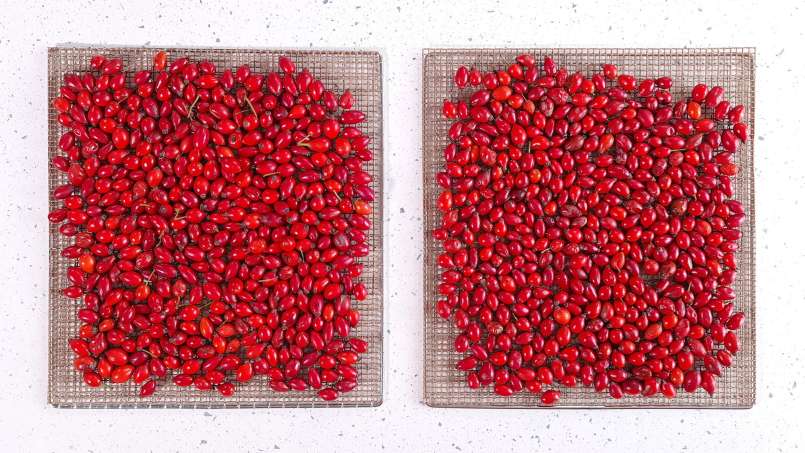
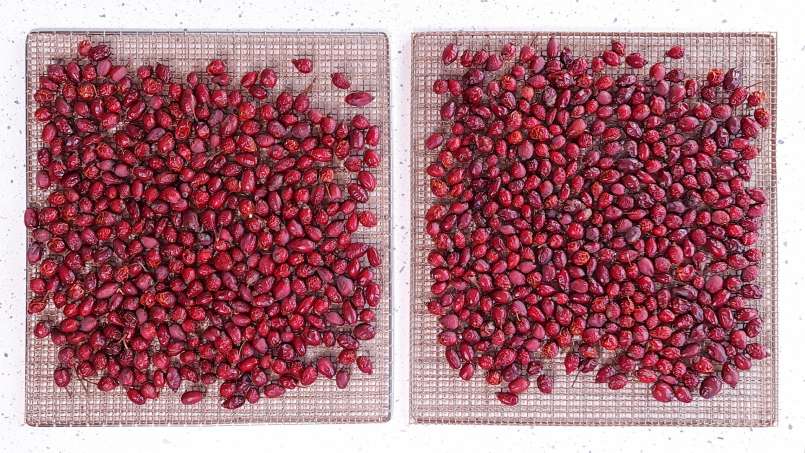
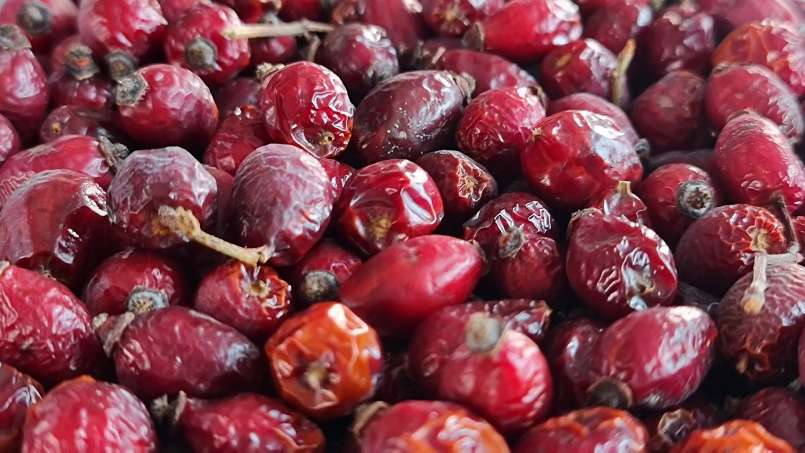
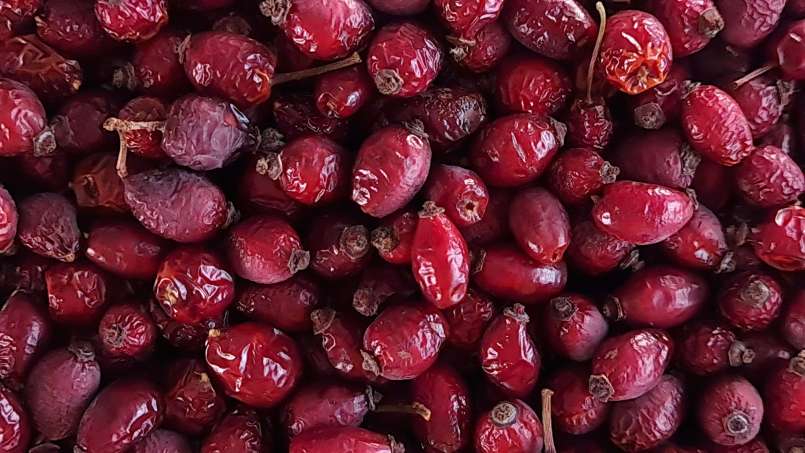
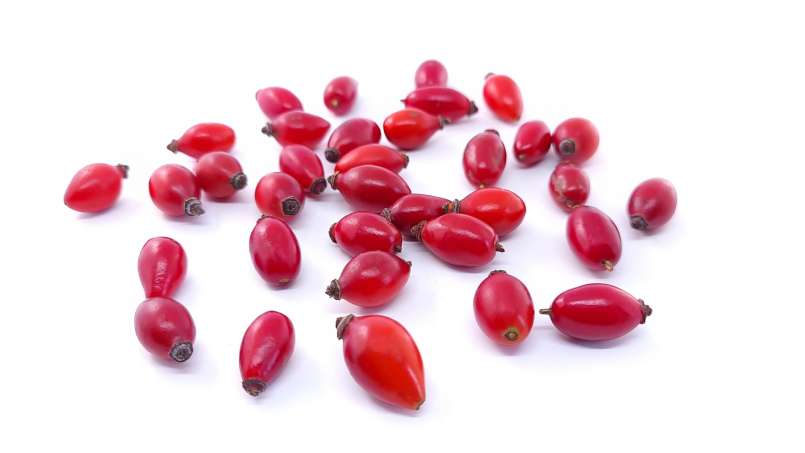
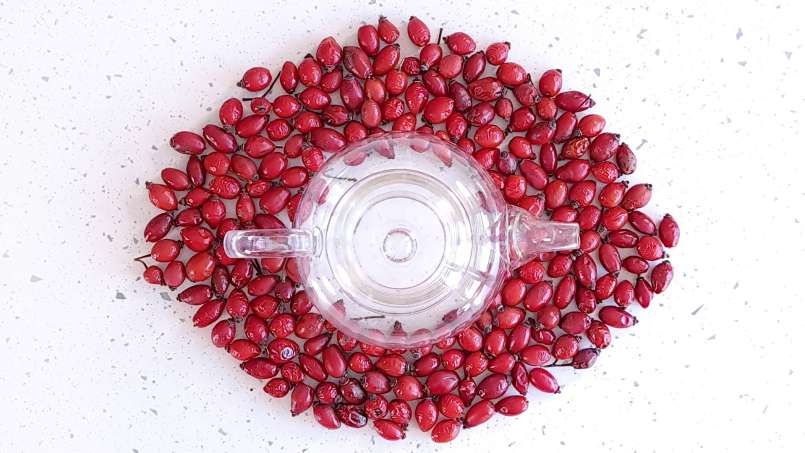
Comments